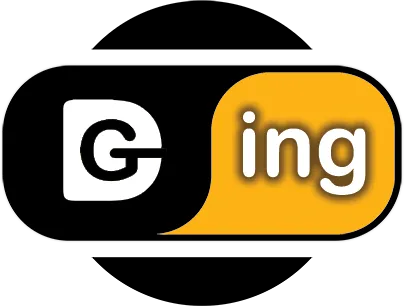In this article, I am going to describe the difficulties of a professional CEO by examining five main problems for those who have recently become CEOs.
In this article, key points are mentioned about the importance of strategy and the place of strategy in business. These points, even if you operate in a small business and are not in the position of CEO, will still help you to better understand the function of strategy. did
The main problems of a CEO
Those who are new and for the first time in the position of CEO, face surprises that they never expected. These surprises exist both for those who previously worked in the same organization and for those who came from outside the organization and were assigned to a CEO.
1- Not having enough time
Because the marginal expectations and troubles from you, outside and inside the company, are much more than what you thought before, so one of the problems you will face is not having enough time to run the company.
You don’t have enough time to run the company, and the volume and intensity of the demands you face will increase quickly.
Your colleague from yesterday, now that you are in this new position, expects you to listen to his work problems and financial issues.
All kinds of radio and television advertising programs and seminars come to you, asking you to be present in them or if you are not present, at least become a sponsor.
Board meetings also usually take up your time without achieving much. In addition, there are always those in the board of directors who do not have much understanding of the business environment, and justifying them in the meeting and writing reports for them outside the meeting will take part of your time. Usually, no one but you understands their language well, and you cannot easily delegate this type of work to others.
There are important meetings that you don’t know the details of, but your presence in them is necessary. Because, for example, for another large company that is going to start cooperation with your organization, it is important that the meeting is held at the level of the CEO, and in such a situation, sometimes you should have pre-meetings so that your managers can provide you with sufficient information about the content of the meeting. And so to speak, brief you .
Internal activities and margins inside and outside the organization take more of your time than you expect.
Of course, what was mentioned are just a few examples, and if you sit down with someone who has just become a CEO and ask him what his tasks and problems are and how different it is from his mental image before reaching this position, you will hear many more examples and experiences. .
2- High cost of ordering
Contrary to what you might expect, being the CEO doesn’t mean you can give whatever orders you want to others, even if you think it’s appropriate for the organization. Because there are many resistances and challenges that you haven’t seen before and you haven’t faced them, which makes ordering a very expensive thing.
Suppose you are sitting at the highest executive point in the company’s organizational chart, that is, in the position of the CEO. The CEO job description seems to indicate that you can comment and give orders in any area.
Every day, you receive all kinds of documents, reports and contracts from different layers of the company. You also think you can review them and sign them if you think it’s appropriate.
But the reality is something else. The fact is that the draft contract that has passed through several hands in the company and finally reached you, must be signed.
If you don’t sign it, you will find many internal opponents. In fact, even if you don’t like this fact, many managers and company experts assume your signature is formal and in their mind, they consider it a part of the inefficient bureaucracy and slow down the collection.
Of course, there is still the bitter truth that was mentioned at the beginning, and that is that if the plans and contracts are implemented and the result is not favorable for the company, the board of directors, shareholders and colleagues will consider you as the first degree culprit.
As a CEO, you have to accept that many direct tools don’t work very well and you have to go for indirect tools.
3- Lack of complete knowledge
Because the information you get is often passed by your colleagues. In addition, you yourself are further away from the operational front and no longer directly have a hand in the fires. It is very difficult to understand what is really going on inside the company and naturally you will not have full knowledge of everything.
Now your direct access to different parts of the company is more limited.
At first glance, it seems that when one person becomes the CEO, the whole company is under his control. But what happens in practice is usually something else.
Your time is spread between all kinds of internal and external work of the company and you are forced to rely on the reports of others and unit supervisors and other managers of the organization.
But they may not provide you with complete reports due to various reasons and motivations.
Among the types of powers that have been given to you, one of the most real ones is the authority to decide about the career path of your colleagues. To stay in their position or to be promoted and even when to ask for their excuse and stop their cooperation with the company.
Considering this point, the first priority of colleagues in reporting and conveying news and comments is to maintain their current position and help improve their position in the future. This goal makes even the words that you heard yesterday from your manager of the same rank, today that you have become the CEO, no longer reach your ears.
4- Sending messages to others
You are not the highest person in the group and the real boss; You have to constantly deal with the board of directors and be in contact with different people and organizations, and if you are the CEO of a company with public shares and many small shareholders, this issue will be even more challenging. Because stock market shareholders often hold company shares for a relatively short or medium term. But you have to make the company successful in the long term, and that doesn’t necessarily serve the interests of those who are concerned with the short and medium term. Creating balance and moving forward all affairs in such conditions will be among the duties of a professional CEO.
So, you are sending a message to others at every moment with every word, action, or every action you don’t do or say.
5- Being human
You are still human; And you have to deal with all your human weaknesses and limitations, including limited energy and the inability to balance the different parts of your life.
A tool to overcome problems
In general, there are many expectations from the CEO and there are many challenges and limitations for this position. So that you are responsible for the success and failure of your company; But you have no role in most of the factors that determine success and failure.
Your authority is greater than that of any other person; But you can’t exercise your powers without trouble. Yes, that means you are the CEO.
But is there a tool to overcome these problems?
Among the indirect tools available to you, strategy is one of the most effective.
The CEO should spend the limited time he has to discuss and exchange ideas with his colleagues to determine and formulate and define the strategy and then help this strategy flow through all layers.
If the strategy tool is used correctly, many policies, expectations and demands of the company’s senior management are injected into the organization in this way, and managers’ hands remain free in executive and operational activities.
Even if executives and middle managers are going to talk to the highest level of the company, preferably these conversations should be about strategy and not the smallest details.
If the CEO has correctly defined, compiled and implemented the strategy with the help of colleagues and group managers and has considered appropriate monitoring mechanisms, he should be able to sign almost every letter, document and contract that comes to his room, happily and without challenge. confirm
If it doesn’t happen, he should look for the problem in the field of strategy and in simpler terms in defining, clarifying, communicating, implementing or monitoring it.
Anyway, the paper that is placed on the CEO’s desk has gone through many stages in the organization and many experts and managers have seen it. If the CEO still has a problem with it and does not want to sign it, it is clear that he failed to define and explain his strategies to the group, or he did not get their participation and opinion when formulating the strategy in an appropriate and effective way. It is now stuck at this stage.
The better and stronger you are at defining and formulating the strategy, the more detailed daily and operational decisions should be easier for you and take less time from your team.
Sometimes, not leaving time for a strategic choice or not clarifying it in the team causes the same topic to be brought up many times in the form of discussions and conflicts and smaller disagreements and take your time.
Do you have other problems for a CEO that you would like to share with us?














